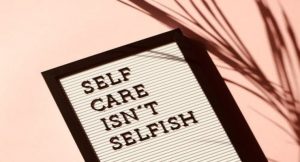“I’m sorry, but…”
These three words…well, I hear them way too often in my work as a couples counselor. While they sound harmless on the surface, they actually are three of the most harmful words that can be said to a spouse or partner. They allude to an apology, but they really just offer up an excuse.
Let’s face it: When someone hurts us, the last thing we want to hear is an apology with strings attached. It negates the apology and immediately puts blame on the injured party. Regardless of whether the injured party carries some of the blame, no one wants to hear a half-hearted, “I’m sorry.”
Quite a bit of what I do in couples counseling is help partners increase connection. The most effective way for couples to do this is for them to repair their emotional injuries and heal relational hurt. Although some of these wounds may happen on purpose, most occur by accident. I typically do not see couples purposely hurting one another, thankfully, but the pain is still there. Many of us hurt the person we love unintentionally and quite often out of protection and avoidance of our own pain. It’s healthy and necessary to apologize, to admit you are wrong when you have caused someone pain. In fact, this is one of the best ways to repair an emotional injury, and so learning to make a good apology is an essential skill in your relationship.
So, what can you do if you hurt your partner, or anyone for that matter?
First, it is important to acknowledge that you played a role in someone else’s pain, regardless of your intentions. It is important to remember that despite your best intentions, you caused the person to feel hurt and pain.
Second, if you hurt someone, own that. Don’t deny or minimize or blame, behaviors that likely mean you’re trying to avoid your own shame and guilt. While we all want to avoid these feelings, and hence doing so is normal, as we learn and grow, we are able to recognize, tolerate, and verbalize these vulnerable emotions. Those feelings and behaviors tell us it’s time to make amends, to make it better, to admit you caused hurt or pain. Own your role.
Your apology might look something like this:
- “I’m sorry for _____________ (fill in the blank). I can see what I did hurt and upset you.”
- “I apologize for ____________(fill in the blank). What I did cause you pain and can understand that you are angry/sad/anxious, and I played a part in that.”
Third, forgive yourself. Don’t hang on to what you did. We are human and make mistakes. Learn from it and move on.
Fourth, make a change and be consistent. It might take you awhile, but consistent, honest change is the best way to show someone you care and “heard” their pain.
Remember…
When apologizing, no buts, no ifs, no shoulds, no hesitation, no passive aggression, and no attitude. Own your mistake, verbalize it, forgive yourself, and make honest change. In doing so you’ll be well on your way to improving your relationships and overall happiness. Couples counseling can be a great way to learn to heal the wounds in your relationship, the pain you may have caused in others, and in fact, the pain you feel within yourself.



